In order to implement quality assurance in higher education and the Internal Quality Assurance System (SPMI), Social and Political Sciences Faculty Quality Assurance Team (TPMF) held an OBE (Outcome Based Education) Curriculum Workshop on Friday – Sunday 19-21 April 2024, attended by Faculty leaders, Department Managers, Study Programs (Prodi) and the Study Program Quality Assurance Team (GPM) within FISIP UNDIP. (19/4)
The event began with remarks and directions from the Deputy Dean 2 for Human Resources, Ika Riswanti Putranti, Ph.D in the changes of the curriculum framework according to Permendikbud Ristek 53/2023, and producing OBE-based curriculum books for each UNDIP FISIP Study Program as an output activity. She highlighted the importance of curriculum development, and to what extent our curriculum is adaptive to knowledge development as well as had adaptive nature to users of DUDI (Business and Industrial World). It is also necessary to re-identify whether the curriculum design produces a unique and specific graduate profile that is manifested in the curriculum. The Deputy Dean for Division 2 of FISIP Undip also emphasized the preparation of Standard Operational Procedures and Manual Procedures for Educational Quality Assurance which are adapted to the SN Dikti, University Strategic Plan and FISIP Strategic Plan as well as their conformity with the Main Performance Indicators (IKU) which are the basis for carrying out activities in each Unit within the FISIP Undip environment. .
The event then continued with explanations from the presenters which were divided into two sessions, First Dr. MR. Khairul Muluk, M.Si (Universitas Brawijaya/IAPA Member) dan Dr. Naniek Utami Handayani, S.Si., (LP2MP Undip). Session 1 moderated by Dr. Drs. Turnomo Raharjo, focused on preparing the OBE Curriculum. There are 3 important points in preparing the OBE Curriculum: (1) the outcomes of OBE Curriculum which must be measured and specific; (2) preparing a curriculum focused on students; and (3) OBE is not an ability or standard that students will achieve after graduating. From these 3 points, OBE is reduced to Outcome Based Curriculum (OBC), Outcome Based Learning and Teaching (OBLT), and Outcome-Based Assessment and Evaluation for Improvement (OBAEI). Dr. MR. Khairul Muluk, M.Si. stated that all loads received by students must be included in the curriculum, because the study load and study period are one unit. The next issue that needs to be paid attention to is the final assignment, comprehensive exam, and thesis exam which are the student’s obligations. Based on the latest regulations, the final assignment is not limited to just a thesis, thus the Final Assignment/Field Work conversion mechanism is compulsory to ensure the the quality assurance of each output.
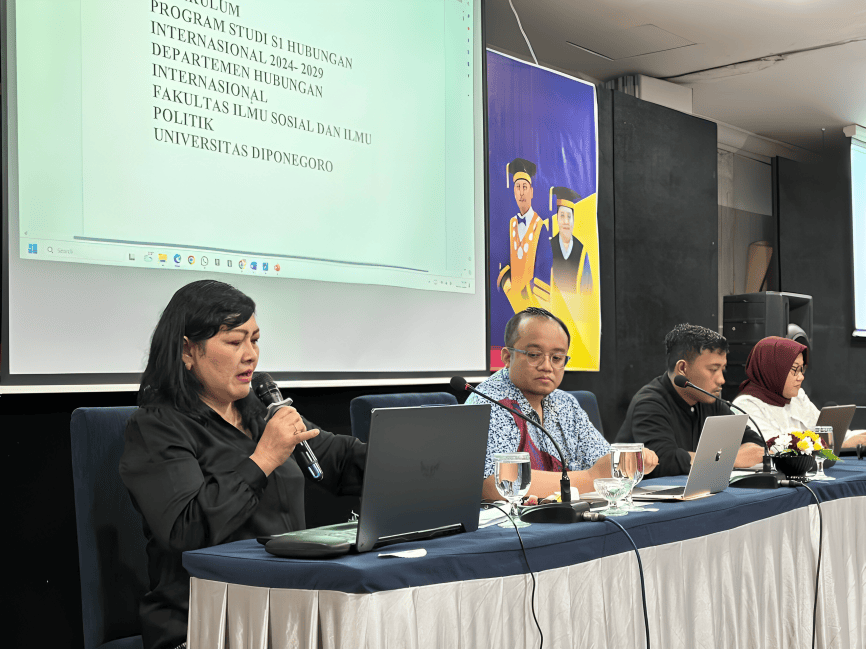 |
 |
Later, session 2 was moderated by Dr. Dewi Erowati, S.Sos, M.Si explained the preparation of OBE Curriculum from UNDIP’s internal perspective within the framework of internal quality assurance. The OBE Curriculum must be designed in line with and follow UNDIP’s Vision, Mission, Goals, and Strategy. The OBE Curriculum emphasizes learning outcomes that emphasize student outcomes, which are related to learning design, CPL, RPS, and depth of material that reflects student’s direct learning experiences. Study programs also need to carry out assessments to ensure that graduates meet competencies and facilitate PDCA (Plan, Do, Check, Action). OBC, OBLT, and OBEAE are indicators in education and must be implemented in the OBE curriculum design. Assessments can be carried out at the end of course or when students graduate. Implementation of OBE Curriculum can use Problem Based Learning (PBL) and Project Based Learning (PjBL) learning designs. Through PBL learning design, students focus on learning by developing real open-ended problem solving skills. Meanwhile, PjBL learning design encourages students to solve real and complex problems through projects/activities.
The second and third days programme continued with the preparation of the curriculum guidebook and a question and answer session from each of the Study Program to the FISIP Assessor team.. This activity is moderated simultaneously by TPMF members. Last, final session of this activity was followed by submission of a curriculum book by GPM and being reviewed by the TPMF team.

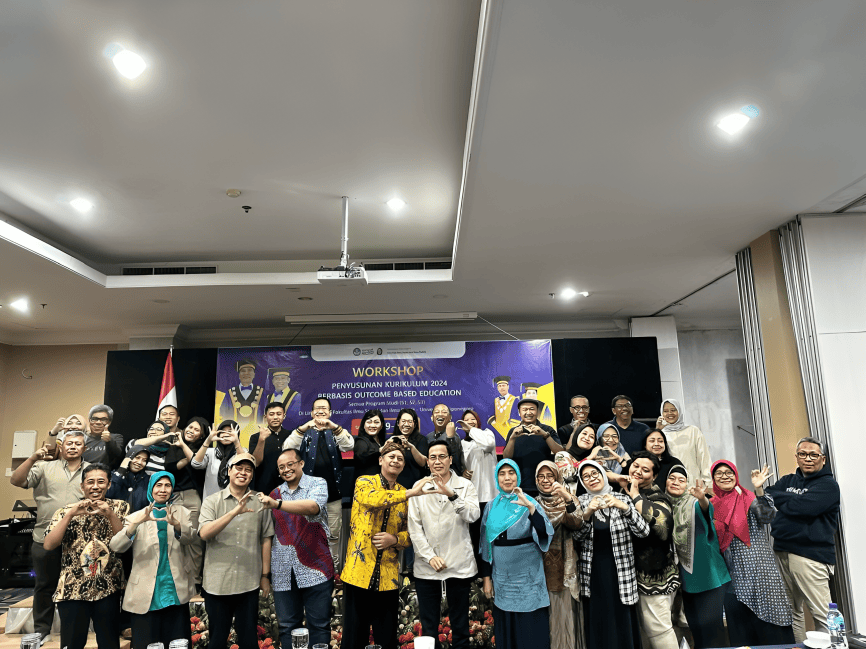
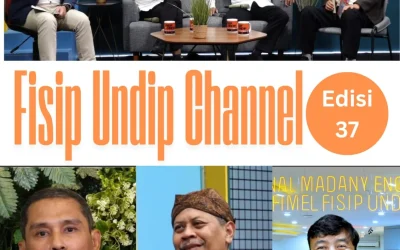
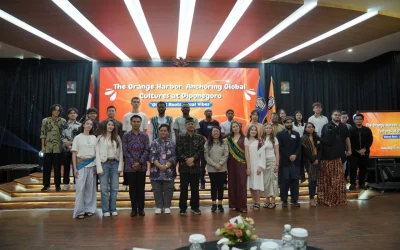
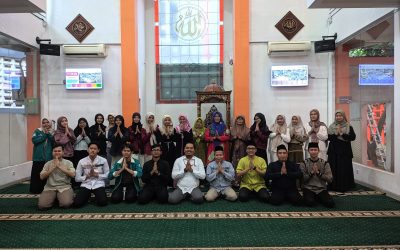
0 Comments